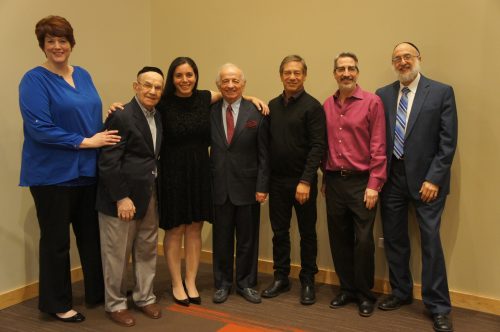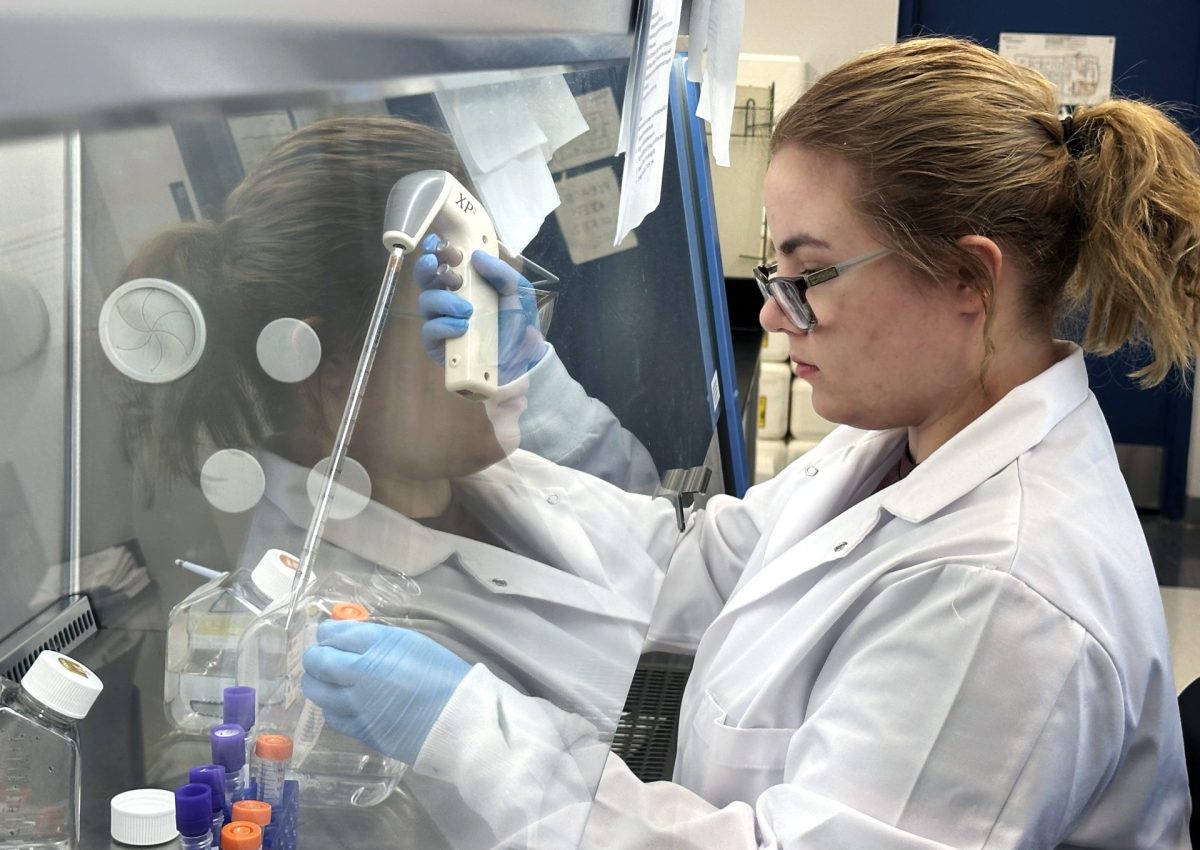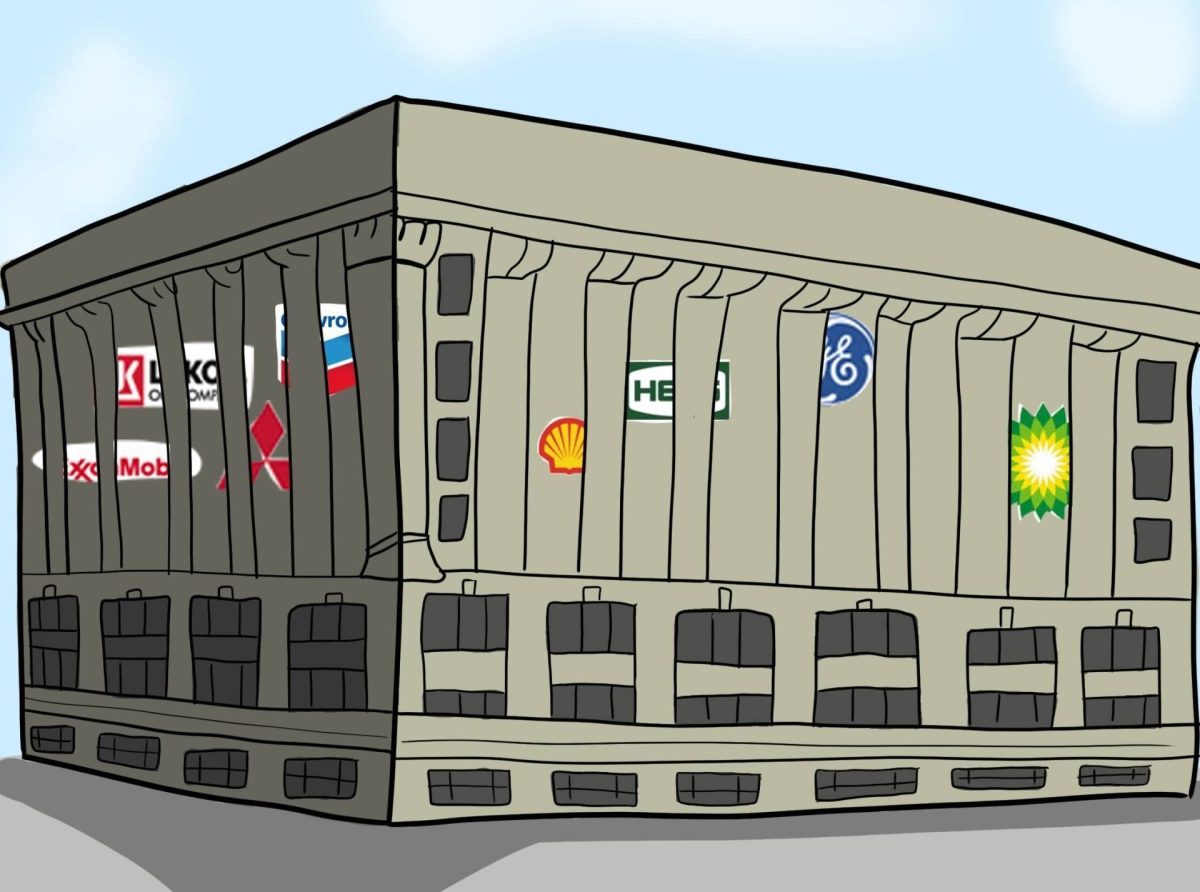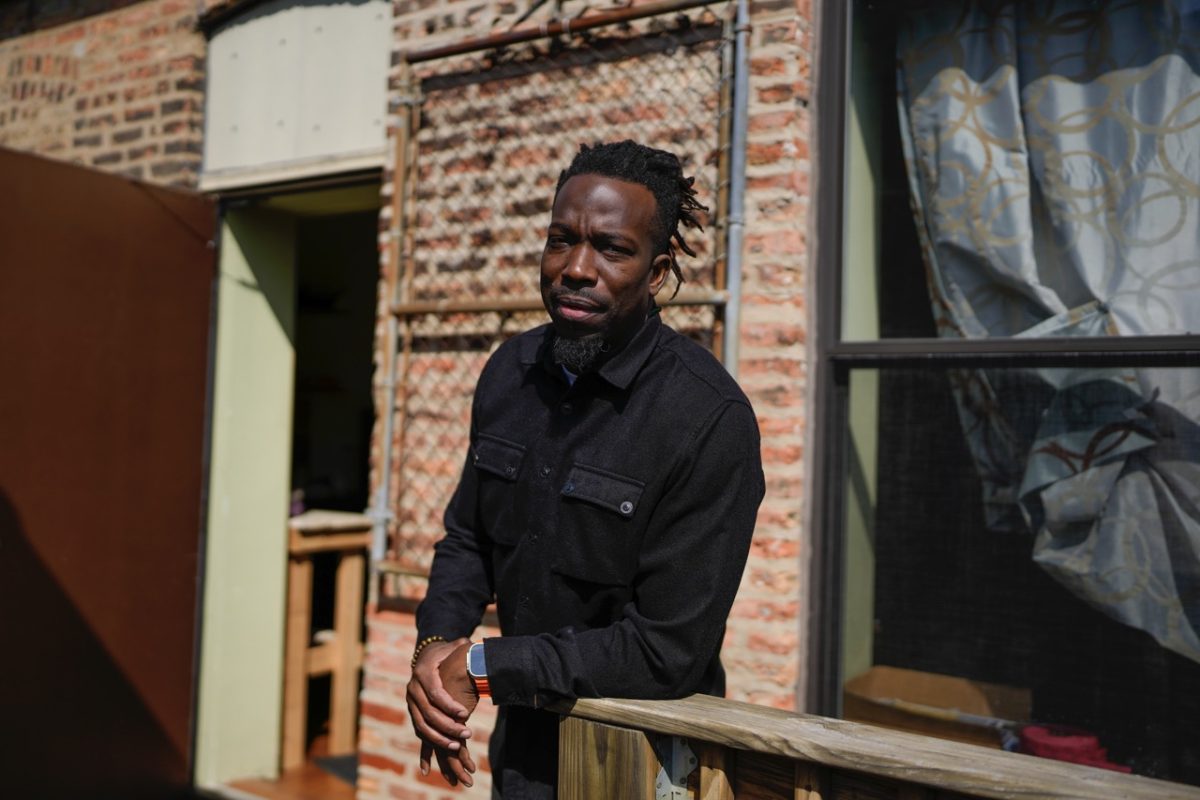Students and faculty gathered on Holocaust Remembrance Day, April 24, for a screening of “Surviving Skokie” to discuss and remember the lasting impacts of the Holocaust amid a spike in hate crimes targeting the Jewish community occurring across the country.
The event was organized by University Ministry, Jewish Life and Chicagoland Hillel, Illinois Holocaust Museum & Education Center (ILHMEC) and the Center for Jewish Law & Judaic Studies. The panel featured holocaust survivor Jack Adler as well as his son and producer of “Surviving Skokie” Eli Adler.
The event also featured Holocaust survivor and special guest David Dragon, professor of law Steven Resnicoff, professor of Holocaust Art and Architecture Paul Jaskot and was moderated by the Director of Education at ILHMEC Kelley Szany.
Jaskot opened the event with an introduction to World War II, how the social displacement of Jews was always “a matter of choice” and how important it is to remember the history.
“(On Holocaust Remembrance Day), I will be getting together with other young Jewish people for Shabbat and we will remember the 6 million Jewish, 2 million Romani, 250,000 mentally and physically ill and the 9,000 LGBT people that were slaughtered because nobody stopped it,” DePaul junior Rivka Yeker said.
David Dragon, Steven Resnicoff and Jack Adler then led the room into a prayer, surrounded by six lit candles in remembrance of the six million Jewish lives lost during the Holocaust. They were also surrounded by white roses, in remembrance of the non-violent Christian group of graduate students of the same name at the University of Munich who risked their lives to resist Nazi Germany.

Anti-semitism still exists, especially among Jewish students, which is why remembrance and education is vital to the conversation.
“When I was in eighth grade, like many kids in middle school, we studied the Holocaust,” Yeker said. “I dealt with anti-semitism in the form of Hitler jokes, big nose jokes, Holocaust jokes, and straight up ignorance aimed directly at me, one of the only Jews in my junior high (school).”
Before the screening, the panel of survivors talked at length about survival and making it through the horrors of Nazi Germany. “Even though we found ourselves in a hopeless and helpless situation, one thing the nazis couldn’t take away was what was in our head,” Jack Adler said. “People who gave up, who had no hope, very few survived.”
“Every night I went to sleep and I said to myself ‘Jack, you have to be strong to survive if you want to see your loved ones again’ and that’s what kept me going,” Jack Adler said. “Of course at that moment I did not know they had all perished.”
“Surviving Skokie” is a documentary about the rise of neo-Nazi Frank Collin and the National Socialist Party of America attempting to march in Skokie in the 1970s, just 30 years after World War II. At that time, many Holocaust survivors sought refuge in Skokie: more than half of the population was Jewish, and 12 percent of that population were Holocaust survivors themselves. Many survivors and Jewish citizens of Skokie felt unsafe and deliberately targeted against.
“Most survivors at that point were not ready to talk about the past,” Eli Adler said. “I knew very little about my father’s past and the more interviews I conducted I discovered that was par for the course.”
Eli Adler is a two-time Emmy Award winning cinematographer, and he used the story of Skokie to learn more about his father’s past.
“I would ask my dad, ‘why don’t I have any grandparents? Why don’t I have any aunts and uncles? Why don’t I have any cousins?’” Eli Adler said in the film. “The older I got the more I realized there were secrets in our family.”
Jack Adler is a very reserved person, especially about his experiences in the Holocaust, and while he wanted people to know about the events in Skokie, there were many obstacles.
“My dad was somewhat reluctant,” Eli Adler said. “It was important to him to have his story told. He never wanted to return to Poland and that was such a difficult and important part of the film.”
The Nazis invaded Poland in 1939 when Jack Adler was 10 years old, and lived in a concentration camp until he was liberated by American soldiers in 1945. After being orphaned by the Holocaust, he left for America in 1946 and never looked back.
After working on “Surviving Skokie,” Jack Adler called his son to tell him that he was ready to go back to Pabianice to try and find the graves of his fallen family. Their trip to Poland is the most emotional and personal part of the film, and it wrestles with Jack Adler’s traumatic experiences in the Holocaust, and his powerful bond with his son.
Jack Adler has spoken about his experiences to students all over the world, and he does the same to a small group of students in Pabianice. He attempts to tell the story of his sister dying at the hands of the Nazis and is brought to tears.
“Like many Ashkenazi Jews, I had a lot of family murdered by the Nazis,” Yeker said. “I spent my pre-teen years fascinated with the Holocaust and learning a lot about it, going to museums, and understanding how one man could wipe away 11 million people. I eventually stopped learning because it hurt too much, because it is something I still cannot fathom, because no matter how many times I read their stories, the endings all ended the same.”
The movie ends with the foundation of the ILHMEC, which was established after the events in Skokie in 1981.
“It was the events in Skokie that woke them up” Eli Adler said. “They said were silent in the ‘40s in Europe and look what happened. We can’t be silent again. And I think that was a very important moment that gave birth to the holocaust museum.”
The museum preserves the stories of the victims and implements educational programs and initiatives to help combat prejudice.
The establishment of the ILHMEC resonates with Eli Adler and the message of his film.
“As we get further away from that horrific time period in history, the concept of the holocaust becomes very abstract,” Eli Adler said. “How do we let young people know what happened?”
The discussion ended with a message to the students in the audience about tolerance and remembrance. “We cannot allow hatred of any kind, bigotry of any kind to any people anywhere in the world happen,” Eli Adler said. “And we have to speak up and speak out.”
“You represent the future of this great nation of ours,” Jack Adler said. “Some of you may be our future leaders. Don’t tolerate any kind of racism or bigotry.”
“Today there are Nazis who still believe in an Aryan race, one that threatens not only my people, but all of the marginalized people that don’t fit into that very small box,” Yeker said. “Everything I do, every part of who I am, is to resist a world where Fascism can live again.”







